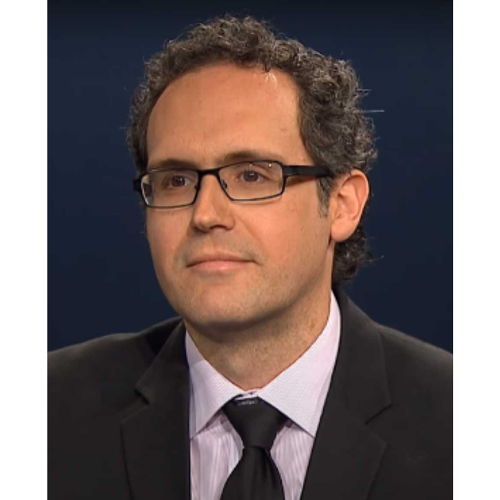Day One: Tuesday, March 15, 2022
10:00 EDT
10 minWelcome and Opening Remarks from the Chair
10:10 EDT
60 minDefining and Framing Issues for Effective Public Policy Development
Caroline Pinto, Founding Partner, Counsel Public Affairs
Bridget Howe, Account Director, Federal Advocacy, Counsel Public Affairs Inc.
- Goals and objectives of public policy design
- Nature and scope of the public issue and interest
- What are the interests, authorities and capacities of government(s)?
- Appropriate tools of intervention to achieve valid public goals
- Impact of policy culture on tools selected
- Horizontal impacts and implications, and how they should be managed
- Examples, practical insights and experience in framing and addressing policy
11:10 EDT
50 minWriting Policy: A Value Based Perspective for Stakeholder Buy-In
It’s no secret that often new policies are a hard sell. We can spend an inordinate amount of time justifying our policies to other stakeholders, trying to get buy-in. But in many cases that effort is avoidable if we word the policy differently.
- Properly distinguishing policy from procedure
- Leveraging the organization’s values
- How corporate culture is reflected in policy wording
- Integrating the value of “respect for others”
12:00 EDT
60 minBreak
13:00 EDT
45 minInfluencing Mental Health Policy During COVID-19 and Beyond
Katerina Kalenteridis, Policy and Research Analyst, Mental Health Commission of Canada
Mauriene Tolentino, Policy and Research Analyst, Mental Health Commission of Canada
- The MHCC and mental health policy in Canada
- The role of policy analysis work at the Commission
- Applying foundational cross-cutting principles to mental health policy work: Importance of health equity, lived and living experiences, and collaboration
- Lessons learned from the MHCC’s COVID-19 Policy Response Project
- Taking stock of national mental health and substance use health impacts through polling and research
- Building collaborative capacity in the sector through the Mental Health and Substance Use Health Policy Network
- Influencing policy action through knowledge mobilization
13:45 EDT
45 minHow Consumer Spending Trends Were Used to Map the Economic Disruption Caused by COVID
Sanjeev Chib, VP & Managing Director, Data and Insights Solutions, Moneris
- How consumer spending trend data can be used to influence policy and decision making by all levels of government
- Regional and national insights used to assist in making policy decisions relating to business development, impact of Covid restrictions on the business community, public transit, etc. (use case review)
- Economic impacts on infrastructure projects on the local business communities
- How spending data helps informs research studies and forecasting models
14:30 EDT
45 minGender-Based Analysis for Better Design, Implementation, Monitoring and Evaluation
- How does the evaluation function provide an opportunity to rigorously examine considerations related to GBA+
- How can an evaluation provide ways to further improve design and implementation of the policy or program?
- What is the role of evaluation in the project management cycle and GBA+?
- Integrating GBA+ into the approach and methodology
- Considering diverse target population groups
- Addressing gender and other intersecting factors
- Identifying any limitations related to GBA+, the impact of those limitations, and how they could have been mitigated to ensure the validity and reliability of finding
- Identifying areas for action and impact on diverse target population groups
- From the evaluator’s perspective: Developing capacity in the evaluation function for GBA+
- From the evaluator’s perspective: Challenges and ways forward
15:15 EDT
45 minStrategic Foresight 2.0: The New Kid on the Block. How Strategic Foresight 2.0 Contributes to Designing Better Public Policies
- The Background to Every Policy: Deepening VUCA-driven Cultural Incoherence.
- Making Reliable and Explicit Sense of It All: A New Requirement.
- Will better Public Policy be enough?
- When and Why was Public Policy Invented?
- What does sound Public Policy do for us?
- Strategic Foresight 2.0 is to Policy what Policy is to Operations.
- The Emerging Focus on Differing Worldviews/Forms of Civilization
- What future does most of today’s Public Policy anticipate?
- Differing Mindsets: Strategic Foresight 2.0, Policy Development and Procedures.
- Practical Advice from the Front Lines.
16:00 EDT
End of Day One
Day Two: Wednesday, March 16, 2022
10:00 EDT
10 minWelcome and Opening Remarks from the Chair
10:10 EDT
65 minChallenge-Based Innovation and Transformational Policy
- Future possibilities: A new approach to policy development
- Impact of future possibilities
- Systemic change required for transformational policies
- Global transformation in the economy
- Hyperconnected devices, data and people
- New perspectives on health
- Net Zero Economy – Low carbon solutions
- The circular economy
- New agriculture and biomaterials
- From ownership to usership
- Leveraging future possibilities
- Building back better
11:15 EDT
45 minThe Need to Question Assumptions in Developing Public Policy in a Time of Crisis: A Framework for Evaluating Canada’s Covid 19 Income Support Programs / Lessons Learned
Rafael Gomez, Professor, Centre for Industrial Relations and Human Resources, University of Toronto
- Criticism of Income support programs introduced for workers during the first wave of COVID-19 lockdowns
- Did these programs negatively impact labour supply?
- What assumptions were made about work disincentives embedded in restrictive assumptions about work
- Did unquestioned assumptions lead to suboptimal design of crisis support policies?
- Alternative crisis income support programs predicated on more realistic assumptions of labour markets and human motivation
- What is the goal of crisis labour market policies?
- How might we have better balanced efficiency, equity and voice?
- How might we have better achieved stated public health objectives?
12:00 EDT
45 minBreak
12:45 EDT
45 minOpen Banking & Policy Development
Patrick Barr, Director, Strategy & Programs, Large Credit Union Coalition (LCUC)
- Open Banking and its variations
- Policy objectives of Open Banking
- Learnings from abroad (UK, EU, Australia)
- Canadian progress and next steps
- Credit union policy positions
- Key Challenges and Learnings from the Policy Development Process
13:30 EDT
45 minWhy Government Communication is a Crucial Component of Policy Design and Implementation
- How efforts with new programs and policies can be undermined by poor, vague or delayed communication
- How much effort should we put into proactively, rather than retroactively addressing disinformation
- Need for more regular and transparent communication, sharing scenario analysis and contingency plans, and outlining trigger points for changes in policy direction.
14:15 EDT
15 minBreak
14:30 EDT
45 minDevelopment of Public Policy in the Context of Federal-Provincial Relations: Long Term Care (LTC) – Is it Time for a Fundamental Redesign?
Steven Shrybman, Partner, Goldblatt Partners, Canadian Centre for Policy Alternatives
- Systemic LTC issues exposed by Covid
- Covid death rates in Ontario in for-profit, non-profit and publicly owned homes
- What evidence was collected and what did it tell us?
- Should the federal government be playing more of a role in LTC as a matter of health care?
15:15 EDT
45 minPublic Dialogue and Deliberation on Polarizing Policy Issues
- Building participant knowledge and understanding
- Fostering productive discussion
- Generating detailed input on public policy options
- Methods for dialogue-based public deliberation on public policy issues
16:00 EDT
End of Day Two













